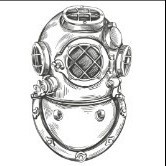Open Source Metal Detector
-
Similar Content
-
- 42 replies
- 5,178 views
-
- 7 replies
- 13,869 views
-
- 21 replies
- 49,044 views
-
- 5 replies
- 1,257 views
-
- 13 replies
- 1,387 views
-
- 4 replies
- 783 views
-
-










Recommended Posts
Create an account or sign in to comment
You need to be a member in order to leave a comment
Create an account
Sign up for a new account in our community. It's easy!
Register a new accountSign in
Already have an account? Sign in here.
Sign In Now